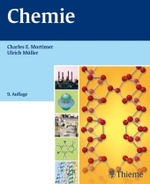- ホーム
- > 洋書
- > ドイツ書
- > Humanities, Arts & Music
- > History
- > 20th century (1914-1955/49)
Description
(Short description)
This volume brings together the work of leading international specialists to show how early modern sanctity was produced, framed, and spread: far from being imposed uniformly upon a global Catholic community by the Roman center, saints were the product of constant negotiations between the global Church and local Catholics living in the four corners of the early modern world. Global in Aspiration, Diverse in Local Manifestation.
(Text)
Early modern Catholicism was a "glocal" affair: global in aspiration yet diverse in its local manifestations. Saint-making was no exception. In the wake of the Council of Trent, the Roman Church developed complex bureaucratic procedures through which the papacy proclaimed the saints of the Church Universal. But these procedures remained contingent on Catholics' active veneration of holy men and women before their formal canonization and the faithful's willingness to reappropriate Roman saints locally once the papacy had reached a verdict. This volume brings together the work of leading international specialists to show how early modern sanctity was produced, framed, and spread: far from being imposed uniformly upon a global Catholic community by the Roman center, saints were the product of constant negotiations between the global Church and local Catholics living in the four corners of the early modern world.
(Author portrait)
Andreea Badea ist wissenschaftliche Mitarbeiterin in der DFG-Kollegforschungsgruppe "Polyzentrik und Pluralität vormoderner Christentümer" an der Goethe-Universität Frankfurt am Main.
Dr. Christophe Duhamelle ist Direktor der Mission Historique Française en Allemagne.
Birgit Emich ist Professorin für Geschichte der Frühen Neuzeit an der Goethe-Universität Frankfurt am Main. Sie hat in Freiburg Geschichte und Politikwissenschaften studiert und war von 2010 bis 2016 Inhaberin des Lehrstuhls für Geschichte der Frühen Neuzeit an der Friedrich-Alexander-Universität Erlangen-Nürnberg. Sie ist Mitglied im Verband der Historiker und Historikerinnen Deutschlands sowie in der Vereinigung für Verfassungsgeschichte. Von 2012 bis 2019 gehörte sie dem Fachkollegium Geschichtswisssenschaft der DFG an. Sie ist Mitherausgeberin mehrerer Zeitschriften und Reihen sowie Mitglied der Wissenschaftlichen Beiräte der Gerda-Henkel-Stiftung, des Deutschen Historischen Instituts in Rom, des Leibniz-Instituts für Europäische Geschichte in Mainz sowie des Historischen Kollegs in München. Aktuell leitet sie die DFG-Kollegforschungsgruppe "Polyzentrik und Pluralität vormoderner Christentümer" an der Universität Frankfurt am Main.








